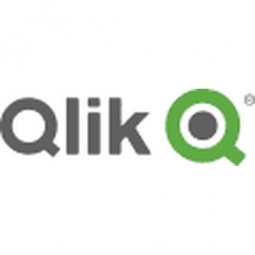Download PDF
Procurement Lincolnshire Saves £3 million in First Year with £24 million forecast over five years using QlikView
Technology Category
- Analytics & Modeling - Real Time Analytics
Applicable Functions
- Procurement
Use Cases
- Supply Chain Visibility
Services
- Data Science Services
The Challenge
Procurement Lincolnshire, a shared service partnership between eight local authorities in the East Midlands, wanted to respond to the need for efficiency savings by analysing its expenditure in more detail than ever before. They decided to improve its visibility over procurement activity with a new software platform to help meet the budget reduction targets posed by the government Comprehensive Spending Review in 2010. The procurement activities under scrutiny already cover around 30 categories. They range from reviews of high spending services, such as adult social care and children services, to outlays on photocopiers, pest control, and even dog kennelling. The challenge was finding a user friendly dashboard solution to access customised data mining reports for a more holistic view of the organisation spend.
About The Customer
Procurement Lincolnshire in the United Kingdom is a shared service partnership between eight local authorities which together spend more than £600 million a year on purchasing of goods and services. The service is formally hosted by the largest authority Lincolnshire County Council on behalf of the other member partners. The other members are Boston Borough Council, City of Lincoln Council, East Lindsey District Council, North Kesteven District Council, South Holland District Council, South Kesteven District Council, and West Lindsey District Council. In the current climate of fiscal restraint in the UK, the partnership wanted to respond to the need for efficiency savings by analysing its expenditure in more detail than ever before.
The Solution
Procurement Lincolnshire chose QlikView as the dashboard solution for their custom-built spend analysis platform. QlikView provides users with an extremely simple but powerful means to analyse data and identify value from it. QlikView also delivers multiple benefits with its patented in-memory associative technology. The versatility and flexibility of QlikView is giving users immediate reports that previously would have been produced on an ad hoc basis by IT staff. With a single click of the mouse, it is possible to drill through to a particular category of spend and view the suppliers for that category, total spend, spend Pareto (a measure of efficiency), and supplier location.
Operational Impact
Quantitative Benefit
Related Case Studies.

Case Study
Remote Temperature Monitoring of Perishable Goods Saves Money
RMONI was facing temperature monitoring challenges in a cold chain business. A cold chain must be established and maintained to ensure goods have been properly refrigerated during every step of the process, making temperature monitoring a critical business function. Manual registration practice can be very costly, labor intensive and prone to mistakes.

Case Study
Retail Uses RFID to Enable Cold Chain Monitoring
Like most grocery retailers, Hy-Vee is faced with the challenge of providing the highest quality products to its shoppers. Shoppers want the longest possible shelf life from perishable products and expect a consistent product experience each time they shop. Controlling the quality of products sold leads to shopper loyalty, which is of paramount importance to the success of Hy-Vee. Before products arrive in stores, Hy-Vee's distribution centers (DCs) handle items including dairy products, fresh meats, seafood, deli items, produce and frozen goods, all of which have different temperature needs and sensitivities. During transit from suppliers to DCs, Hy-Vee has limited visibility and temperature management abilities due to large amount of supplier managed transportation. For instance, during a week-long transit, a supplier's carrier equipment may malfunction, causing an item to thaw and then refreeze once repairs are made. Hy-Vee sought help from TempTRIP, an RFID solution provider that focuses on shipping, storage, receiving, and temperature control. TempTRIP's EPC RFID tags use Impinj chips to monitor and report temperature readings throughout the shipping and receiving process. The tags can also be re-configured and re-used, a unique feature within the current market of temperature monitoring devices.

Case Study
Covisint Improves Mitsubishi's Collaboration With Its Supply Chain
Mitsubishi sought to improve supplier relationships on a global basis and to offer an easy-to-use solution to interact with them. In August 2004, Mitsubishi selected Covisint’s platform to help improve sharing of information and collaborative business processes with its global suppliers. Covisint enabled Mitsubishi to provide its suppliers with immediate access to information and applications to obtain more collaborative working relationships








